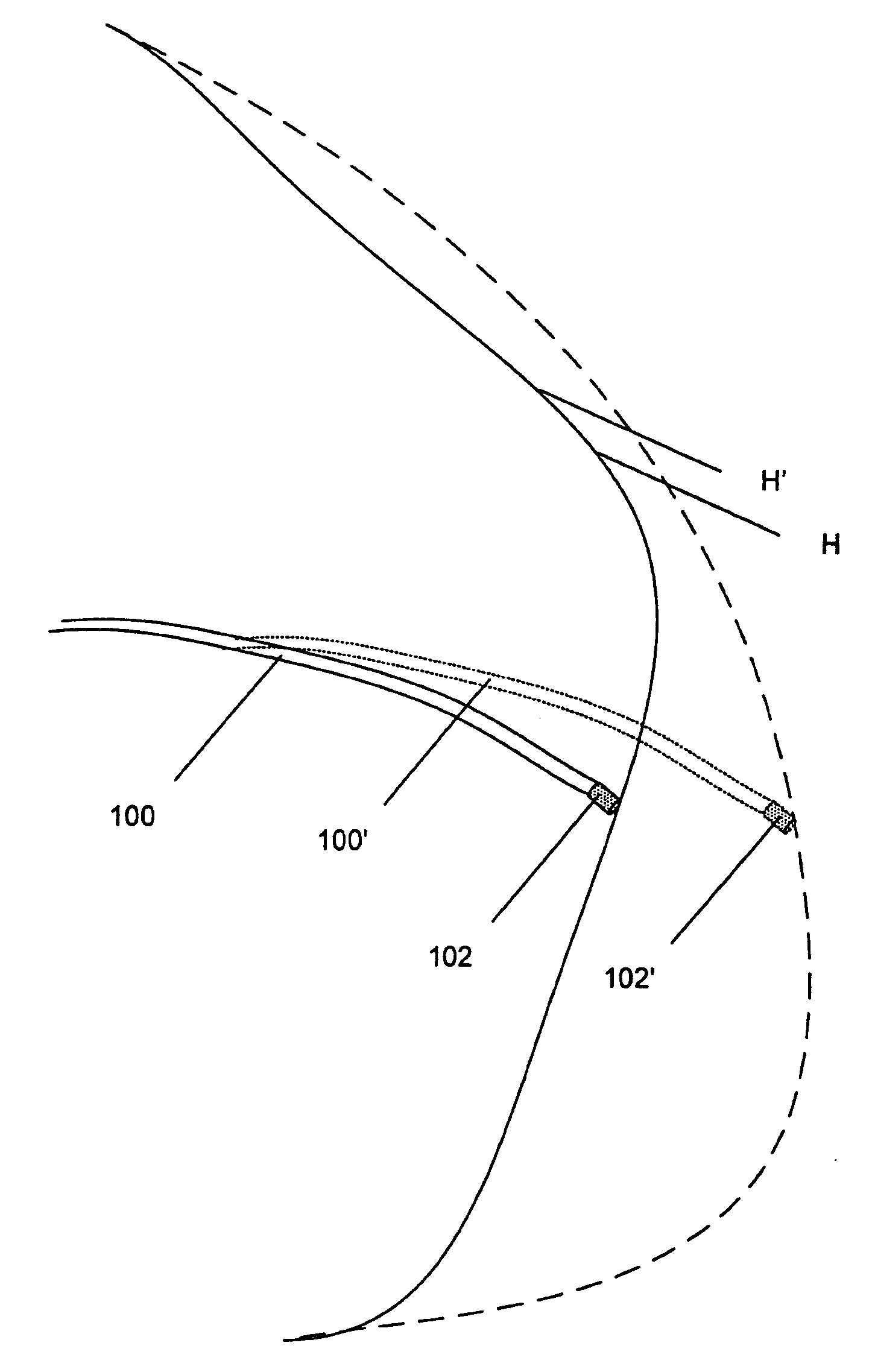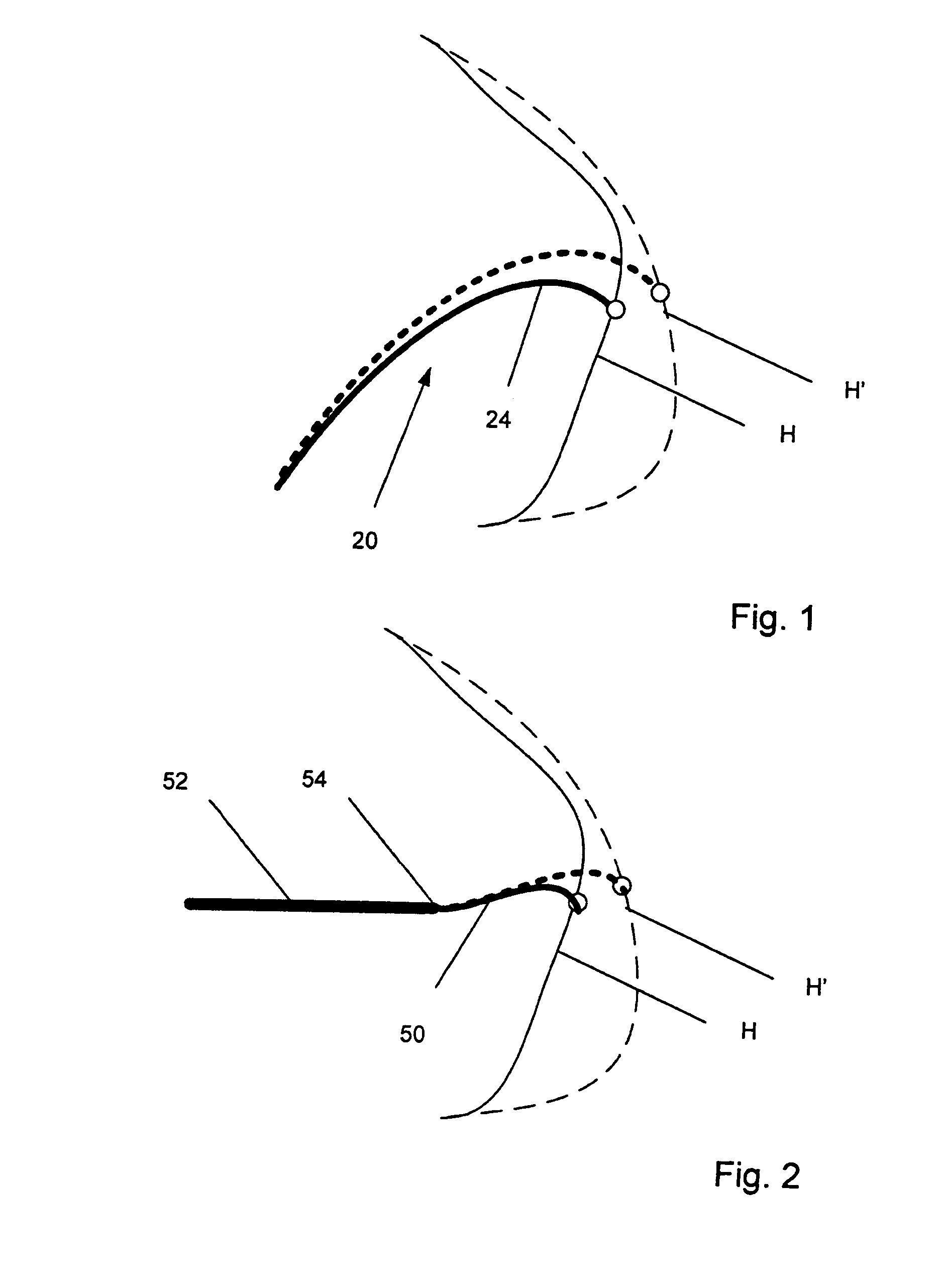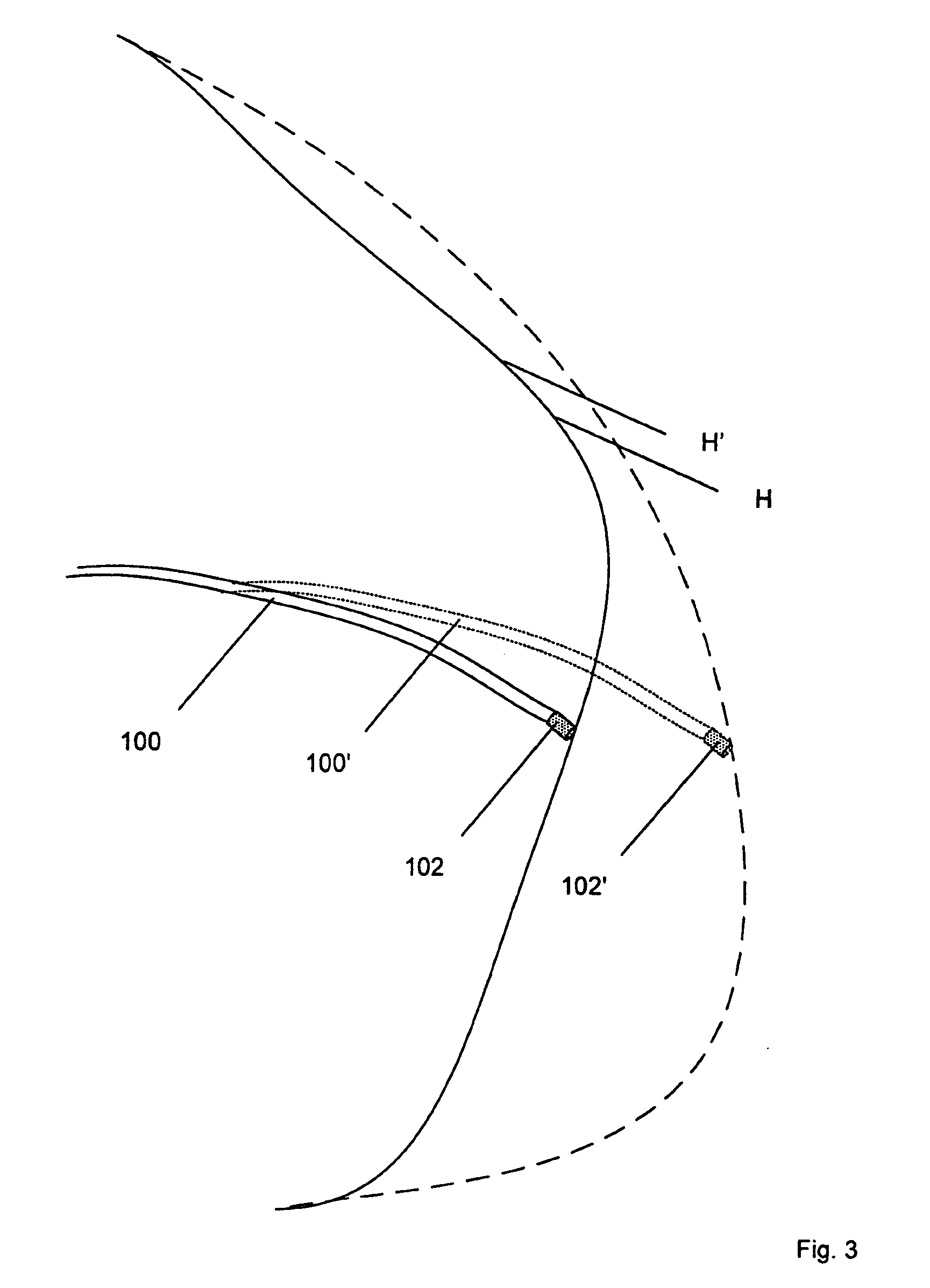Electrophysiology catheter and system for gentle and firm wall contact
a technology of electrodes and walls, applied in the field of electrophysiology medical procedures in the intracardiac cavity, can solve the problems of reducing the effectiveness of mapping and ablation, difficulty in maintaining the desired contact with the moving surface of the heart, and local anomalies, and achieves the effect of satisfying and sa
- Summary
- Abstract
- Description
- Claims
- Application Information
AI Technical Summary
Benefits of technology
Problems solved by technology
Method used
Image
Examples
second embodiment
[0019] Alternatively, in a second embodiment, the catheter actuated by a remote navigation system can be advanced (possibly by using a joystick or other control), or magnetic field or other control variable applied, until distal catheter shaft prolapse is visible on an X-ray image or an ultrasound image. This prolapse of the catheter can be continually monitored by the user during the diagnostic process, or during the therapy delivery portion of the procedure (such as RF ablation).
third embodiment
[0020] In a third embodiment shown in FIG. 2, the flexible catheter 50 is disposed inside a guide sheath 52. The guide sheath 52 is navigated to a position adjacent to and opposed to the anatomical surface of interest. This can be conveniently done with a remote navigation system, such as a magnetic navigation system or a mechanical navigation system that orients the distal end of the guide sheath. Once the distal end 54 of the guide sheath 52 is positioned, the catheter 50 is advanced until it contacts the anatomical surface and buckles. More specifically, the catheter 50 is advanced until it remains buckled during the entire cycle of movement. This is illustrated in FIG. 2 which shows that when the heart is contracted, the catheter 50 (shown in solid lines) contacts the wall of the heart H (shown in solid lines, and when the heart is expanded, the catheter indicated as 50′ (shown by the dashed lines) contacts the wall of the heart indicated as H′ (shown in dashed lines).
[0021] By ...
fourth embodiment
[0022] Alternatively, in a fourth embodiment, a guide sheath actuated by the remote navigation system can be advanced (possibly by using a joystick or other control), or magnetic field or other applied control variable, until distal catheter shaft prolapse is visible on an X-ray image or an Ultrasound image. This prolapse of the catheter can be continually monitored by the user during the diagnostic process, or during the therapy delivery portion of the procedure (such as RF ablation).
[0023] Examples of a guide sheaths are disclosed in U.S. Pat. No. 6,527,782, issued Mar. 4, 2003, for “Guide for Medical Devices”, incorporated herein by reference. In one preferred embodiment the guide sheath can be actuated mechanically with pull-wire cables, as also described therein. The wires can be driven with computer-controlled servo motors or other mechanical means. The soft catheter passes through the sheath and the length of catheter that extends from the distal end of the sheath can itself ...
PUM
 Login to View More
Login to View More Abstract
Description
Claims
Application Information
 Login to View More
Login to View More - R&D
- Intellectual Property
- Life Sciences
- Materials
- Tech Scout
- Unparalleled Data Quality
- Higher Quality Content
- 60% Fewer Hallucinations
Browse by: Latest US Patents, China's latest patents, Technical Efficacy Thesaurus, Application Domain, Technology Topic, Popular Technical Reports.
© 2025 PatSnap. All rights reserved.Legal|Privacy policy|Modern Slavery Act Transparency Statement|Sitemap|About US| Contact US: help@patsnap.com



